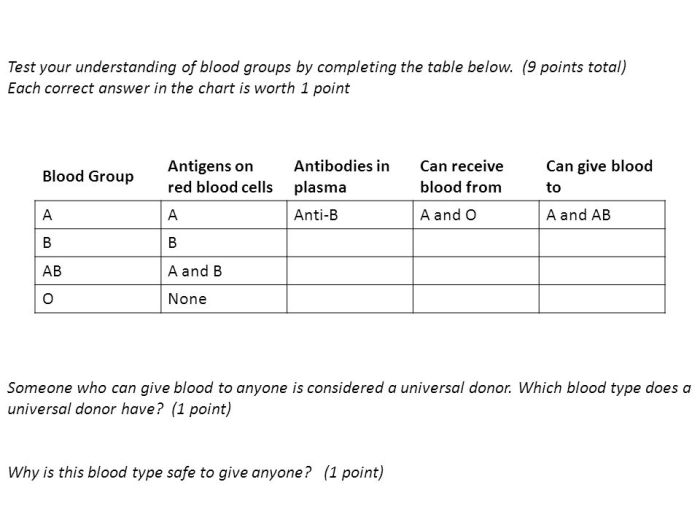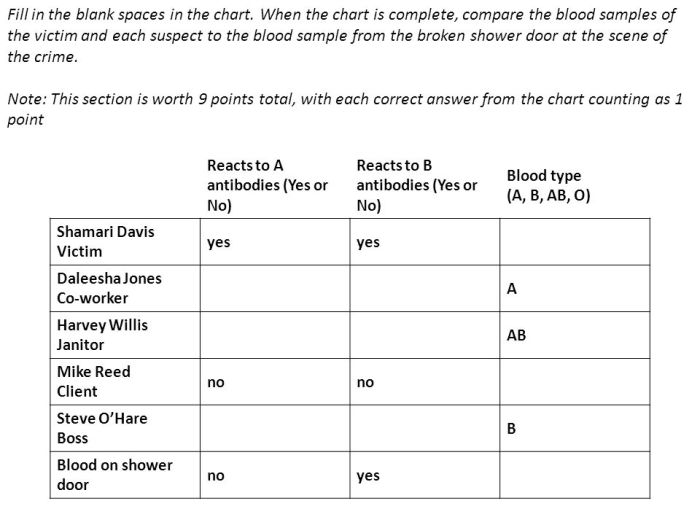Using blood tests to identify babies and criminals – Utilizing blood tests for the identification of infants and criminals has revolutionized forensic science and infant care. This multifaceted technique offers immense potential for accurate identification, facilitating justice and ensuring the well-being of vulnerable individuals.
Blood tests, particularly DNA analysis and blood typing, play a crucial role in criminal investigations. They provide irrefutable evidence for linking suspects to crime scenes, exonerating the innocent, and solving cold cases.
Blood Testing for Infant Identification

Blood testing has played a vital role in identifying infants, particularly in cases of suspected child abduction or adoption fraud. Historically, blood typing was used for this purpose, but the development of DNA analysis has revolutionized infant identification.
Specific blood tests used for infant identification include:
- DNA analysis: This highly accurate test compares the DNA of the infant with that of the alleged parents or guardians.
- Blood typing: This test determines the blood type of the infant and compares it with the blood types of the alleged parents to establish compatibility.
Advantages of using blood tests for infant identification:
- Accuracy: DNA analysis is highly accurate and can conclusively establish or exclude parentage.
- Objectivity: Blood tests provide objective evidence that is not influenced by subjective factors such as witness testimony.
Disadvantages of using blood tests for infant identification:
- Invasive: Blood tests require drawing blood, which can be uncomfortable or stressful for infants.
- Costly: DNA analysis can be expensive, especially if multiple tests are required.
- DNA analysis: This test analyzes the unique DNA profile of an individual, which can be used to identify suspects, link them to crime scenes, or exclude them from involvement.
- Blood typing: This test determines the blood type of an individual, which can be used to narrow down the pool of suspects or exclude individuals based on blood type evidence found at crime scenes.
- Privacy: Blood tests can reveal sensitive genetic information that could be used for purposes beyond identification, raising concerns about privacy violations.
- Informed consent: It is essential to obtain informed consent from individuals before conducting blood tests, especially in the case of infants or individuals who may not be able to consent themselves.
- Admissibility in court: Blood test results are generally admissible as evidence in court, but their admissibility may be challenged on grounds of reliability, consent, or other legal issues.
- Database use: The creation and use of DNA databases for criminal identification purposes have raised concerns about potential misuse and privacy violations.
- High-throughput sequencing: This technology has revolutionized DNA analysis by enabling the rapid and cost-effective sequencing of large amounts of DNA, improving the accuracy and efficiency of identification.
- Microfluidic devices: These devices allow for precise and automated manipulation of small volumes of blood, making blood testing faster and more accessible.
- Cultural attitudes towards privacy and genetic information can influence the acceptability of blood testing for identification purposes.
- Social norms and legal frameworks governing consent and data protection can vary, impacting the implementation of blood testing programs.
- Some countries have implemented population-wide DNA databases for criminal identification, while others have more restrictive policies due to privacy concerns.
- International collaborations and standardized protocols have been developed to facilitate the exchange of blood test results across borders for criminal investigations.
Blood Testing for Criminal Identification: Using Blood Tests To Identify Babies And Criminals

Blood testing plays a crucial role in criminal investigations by providing valuable information for identification, linking suspects to crime scenes, and excluding individuals from involvement.
Types of blood tests used for criminal identification:
Accuracy and reliability of blood tests for criminal identification:
DNA analysis is highly accurate and reliable, with a very low probability of error. Blood typing, while less accurate than DNA analysis, can still provide valuable information for criminal investigations.
Ethical and Legal Considerations

The use of blood tests for infant and criminal identification raises important ethical and legal concerns.
Ethical concerns:
Legal implications:
Technological Advancements
Technological advancements have significantly improved the accuracy, efficiency, and affordability of blood testing for infant and criminal identification.
Latest advancements:
Potential future advancements:
Ongoing research aims to further improve the accuracy, speed, and sensitivity of blood tests for identification purposes. These advancements could lead to even more reliable and efficient methods for identifying individuals.
International Perspectives
The use of blood tests for infant and criminal identification varies across different countries.
Cultural, social, and legal factors influencing the use of blood tests:
Innovative approaches to blood testing:
FAQ Overview
What are the advantages of using blood tests for infant identification?
Blood tests offer a highly accurate and reliable method for establishing paternity, resolving custody disputes, and identifying missing or abducted children.
How accurate are blood tests for criminal identification?
DNA analysis is considered the gold standard for criminal identification, providing near-infallible accuracy in identifying individuals.
What are the ethical concerns surrounding the use of blood tests for identification?
Ethical considerations include privacy concerns, potential discrimination, and the misuse of genetic information.